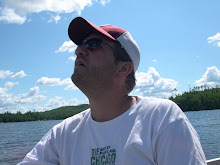After my time in the ICU, they wheeled me into my room. I think the hospital rule has it so you can't be in the OR/ICU for more than 24 hours, but I think I was just over that amount of time. By the time I got to my room, I was fully awake and feeling okay. Trying to get my bearings and remember things I couldn't remember seemed to be more of an issue than the pain.
Dream a little dream.
For the first few days, I was having bad dreams. Weird, gross dreams that involved gross things (I'll spare you the details) that I normally don't dream about. And they were very vivid. I didn't ask the docs about it (maybe I should have), but it seemed to be related to my heavy pain meds. (I think I was on Vicodin). The dreams went away when I stopped taking the heavy stuff. Thankfully.
And then things got complicated.
I would have been home sooner from the hospital, but 1) my surgery was delayed two days and 2) I had some complications.
First, I had post-operative/subcutaneous emphysema. This is where air gets trapped around the lungs as a result of the surgery. More info can be found here. Either I didn't remember or they didn't tell me this could happen. I'm sure it was in the paperwork they handed to me in the two-inch binder, but I wasn't clear as to the complications that might occur. The next time I have any surgery, I will definitely ask the complications that may occur. Obviously, death is the worst of complications. But I wish I would have known what to expect versus learning after the fact. Actually, in order to get the air out, they had to put the tube back in my chest. In the patient room!! Without anesthetic!!! It was the absolute worst pain of my entire life. Either the pain was horrible (which it was) and/or I've never had to experience pain that often in my life. Come to think of it, I haven't had that many "stereotypically" painful experiences in my life: kidney stone, appendicitis, broken bone, gunshot wound. Just your run-of-the-mill sprains and lacerations/stitches. When they put the tube in, and I was yelling out in pain, I could feel the air go from my mouth through my chest/lungs and through the tube out my side. Very weird (and did I mention painful?) sensation.
Next complication: Crepitus. I think this complication sounds like a heavy metal band, don't you? It is defined as "a crackling sound resulting from subcutaneous emphysema, or air trapped in the subcutaneous tissues." When the doctor or I or some other person would press on the skin around my chest, it would feel like "rice krispies". Their words. Another very weird sensation. Mine wasn't a very bad case. You couldn't even see it with your eyes. Some severe cases you can see with your eyes and the patient even has trouble breathing.
Pulmonary edema. According to Wiki, is fluid in the lungs. When they went in on my right side with the surgical instruments, they had to deflate my lung to get to my heart. Crazy. When the surgery was over, they reinflate the lung. However, sometimes the lung doesn't inflate completely. I pictured a pool toy being blown up and part of it is stuck together so that part doesn't inflate. That's basically the idea. I needed to do breathing exercises to help reinflate the lung and, therefore, get the fluid out. Technically speaking, it's called a collapsed lung or pneumothorax.
"Why is daddy glowing??"
I asked at one point, but I don't remember now, but I think I had a total of 13 chest Xrays after surgery. They wanted to check the pulmonary edema and the pneumothorax. This is what kept me from being released. It's also why I wasn't allowed to take a plane ride home. We basically ate our tickets and rented a car. Otherwise, we would have been stuck in Cleveland until I was allowed to get on a plane again...in 6 to 8 weeks.
Stir crazy...and I don't mean the movie.
By the time it was time for me to go, I was really ready to go. Actually, this is one of the few knocks against the Cleveland Clinic. I had to wait on the doc to release me, and I thought I was going to be released in the morning. It was after 1 when we left. I know this is common for most hospitals, but they either need to fix the problem or manage expectations better than they did. After having some rental car problems (some rental places don't take debit cards), we hit the road. I was supposed to get out of the car and walk around every hours, but we still made pretty good time. We really wanted to get home. And we did, finally, on Sunday night. It was awesome/wonderful/emotional to see the kids. My mom (or sister, I don't remember now) made some homemade chicken n' dumplins. It was the best comfort food I have ever had in my life. Thank God we're home.





